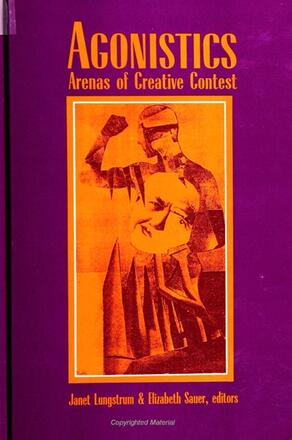
Agonistics
Arenas of Creative Contest
Alternative formats available from:
Focuses on a very significant psycho-cultural concept (that of "agonistics" or "contestatory creativity") with ramifications in several areas of the postmodern debate: cultural philosophy, psychologies of race, gender and the body, and narratology.
Description
This book examines the ambiguities inherent in the concept of the agon as a motivating, conflictual force behind creative and social expression. The notion of agonistics extends far beyond the literary fame lent it by Harold Bloom to embrace all aspects of culture. The editors blend theoretical sophistication with an interdisciplinary approach and reposit the agon in a new, broad context for postmodern inquiry. Taking their inspiration from Friedrich Nietzsche's essay "Homer's Contest," Lungstrum and Sauer trace the evolution of the agon: from its vital function in ancient Greece, through modernity, and onward.
Janet Lungstrum is Assistant Professor of German Literature at the University of Colorado at Boulder. Elizabeth Sauer is Associate Professor of English Literature at Brock University. She is the author of Barbarous Dissonance and Images of Voice in Milton's Epics.
Reviews
"The editors have staked out the domain of agonistics in their Introduction, tracing its various definitions from Nietzsche through Freud and Wittgenstein, to Derrida, Bloom, and Lyotard. They have also structured the individual analysis around four, well-balanced thematic focuses that broach agonistic creativity from a philosophic, psychoanalytic, narratological, and socio-sexual point of view. These focuses are to a large extent complementary, establishing a continous intertextual dialogue across the thematic separations. " — Marcel Cornis-Pope, Virginia Commonwealth University